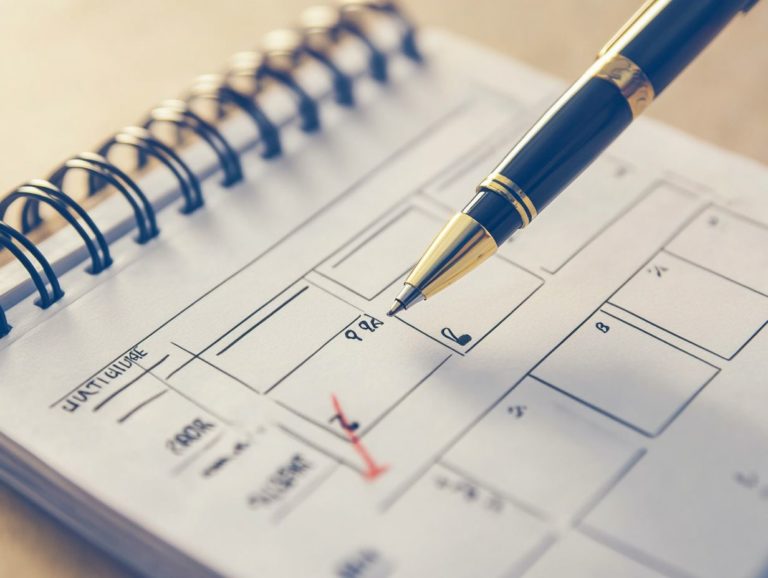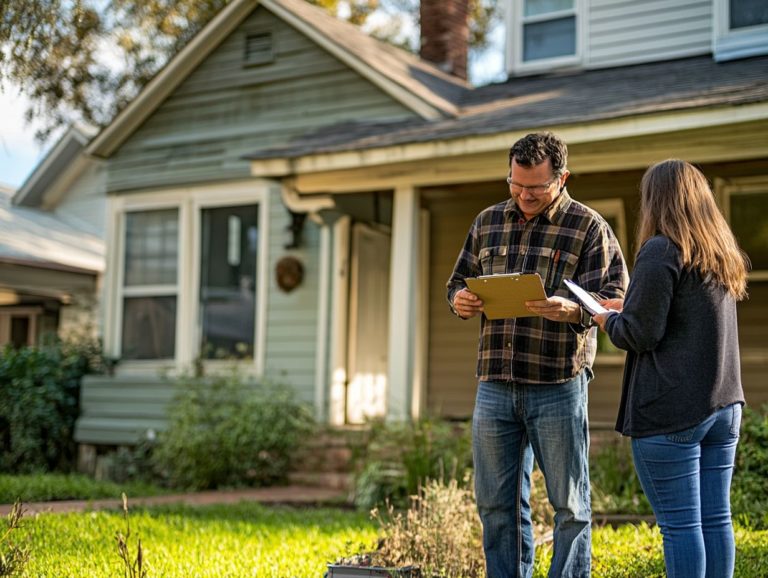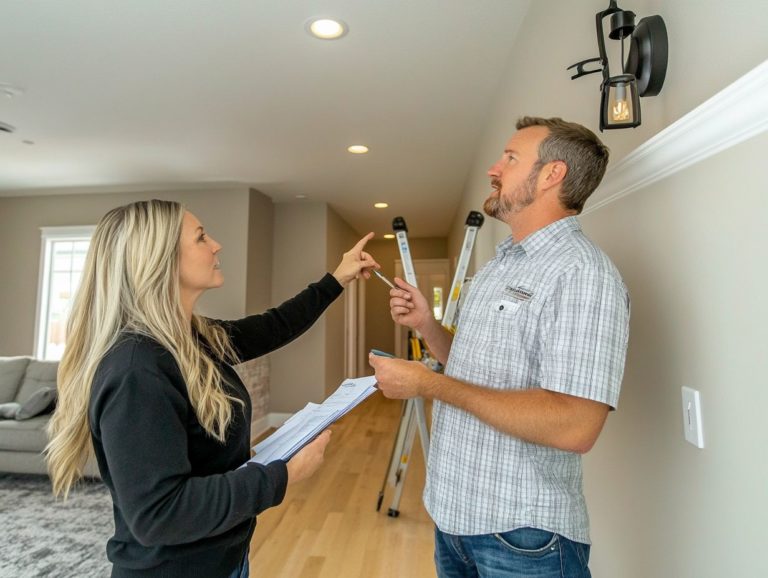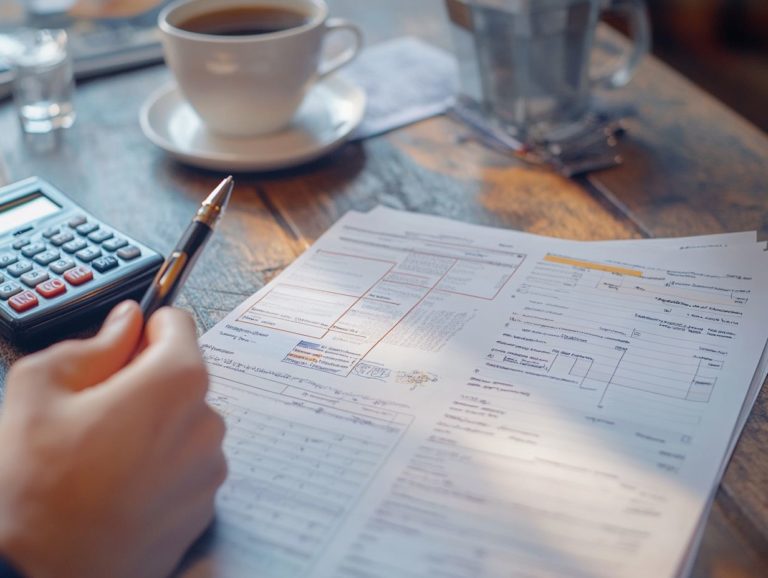How to Communicate with Your Home Inspector
Get ready to unlock the secrets of your home! Preparing for a home inspection may seem overwhelming, but knowing what to expect and mastering the art of effective communication can truly transform the experience.
This guide presents crucial steps for a successful inspection, from readying your property to vital questions you should pose to your inspector. It emphasizes the significance of clear communication and equips you to address any concerns that may surface.
By the end, you’ll feel empowered to navigate the inspection process with utmost confidence!
Contents
- Key Takeaways:
- Preparing for a Home Inspection
- Importance of Communication with Your Home Inspector
- Questions to Ask Your Home Inspector
- How to Address Concerns and Issues
- Following Up After the Inspection
- Frequently Asked Questions
- What should I expect when communicating with my home inspector?
- How can I effectively communicate with my home inspector?
- What questions should I ask my home inspector?
- Can I attend the home inspection?
- What should I do if I have concerns about the inspection report?
- How can I use the information from the home inspection to negotiate with the seller?
Key Takeaways:
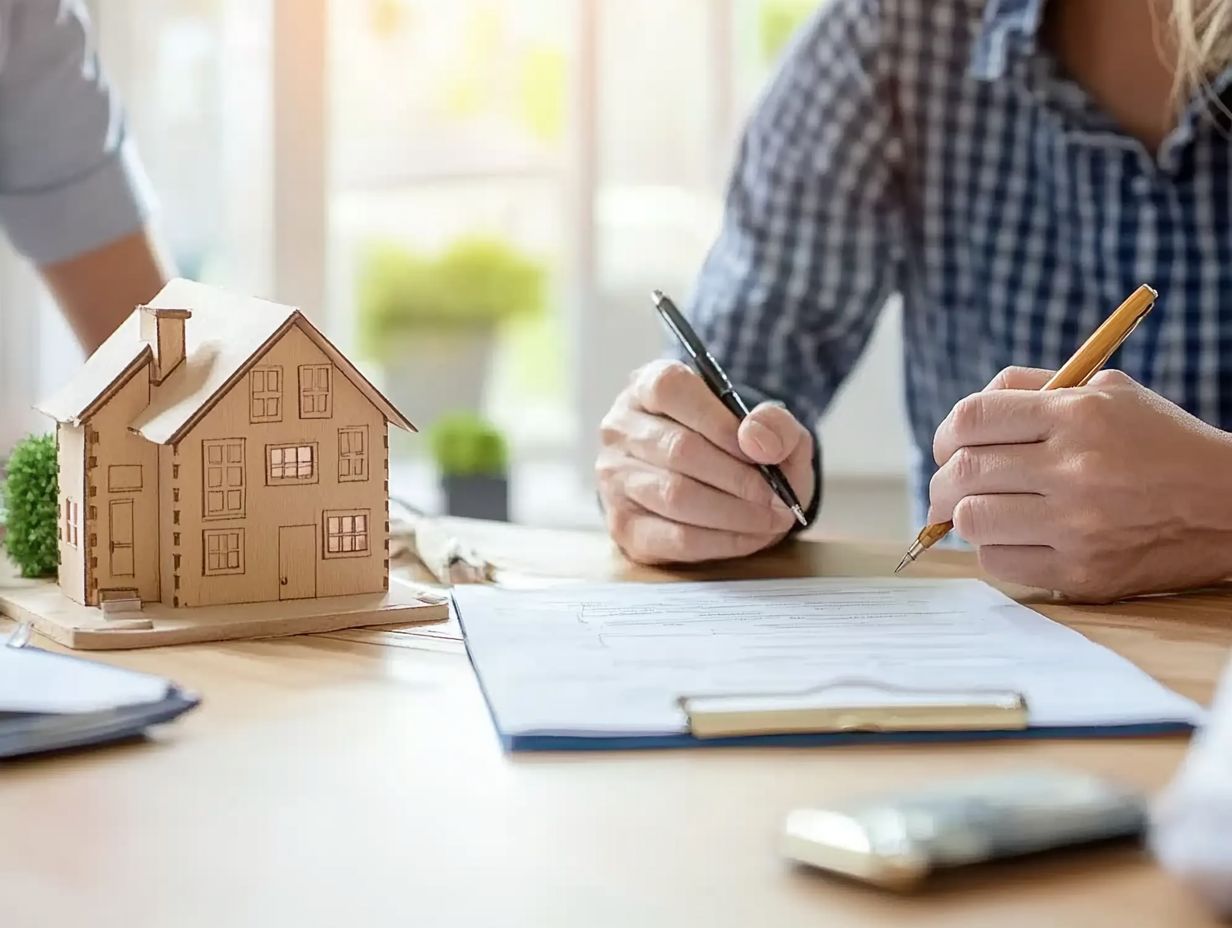
Preparing for a Home Inspection
Preparing for a home inspection is essential for both buyers and sellers. It significantly influences the negotiation process and the property s overall value.
By understanding what to expect, you can alleviate concerns and set realistic expectations. It s vital to choose inspectors who meet the standards of practice in Texas, particularly those certified by reputable organizations like InterNACHI.
Effective preparation goes beyond just knowing the inspection process. You should also be aware of potential safety hazards and identify major or minor defects that could impact the property s condition.
What to Expect and How to Prepare
When preparing for a home inspection, understanding what to expect can significantly alleviate any anxiety you may have, whether you’re a property buyer or seller.
This essential assessment typically covers critical areas, including roofing, plumbing, electrical systems, and the overall structure of the home.
Inspectors play a key role in spotting issues. Their insights can save you from unexpected repair costs down the line.
To fully benefit from this experience, actively engage with the inspectors by asking key questions to ask your home inspector about their findings and recommendations. This interaction addresses any concerns you might have and deepens your understanding of the home’s condition, giving you the power to make well-informed decisions before finalizing your purchase.
Importance of Communication with Your Home Inspector
Effective communication with your home inspector is essential for achieving clarity and transparency throughout the inspection process. Learning how to communicate with your inspector not only enhances client satisfaction but also gives you the power to make informed decisions.
Establishing rapport helps inspectors better address your expectations while ensuring thorough documentation of their findings.
With a detailed report outlining safety hazards, major defects, and even minor issues, you ll be well-equipped to negotiate confidently and make sound financial choices regarding your property investment.
Why Communication is Key
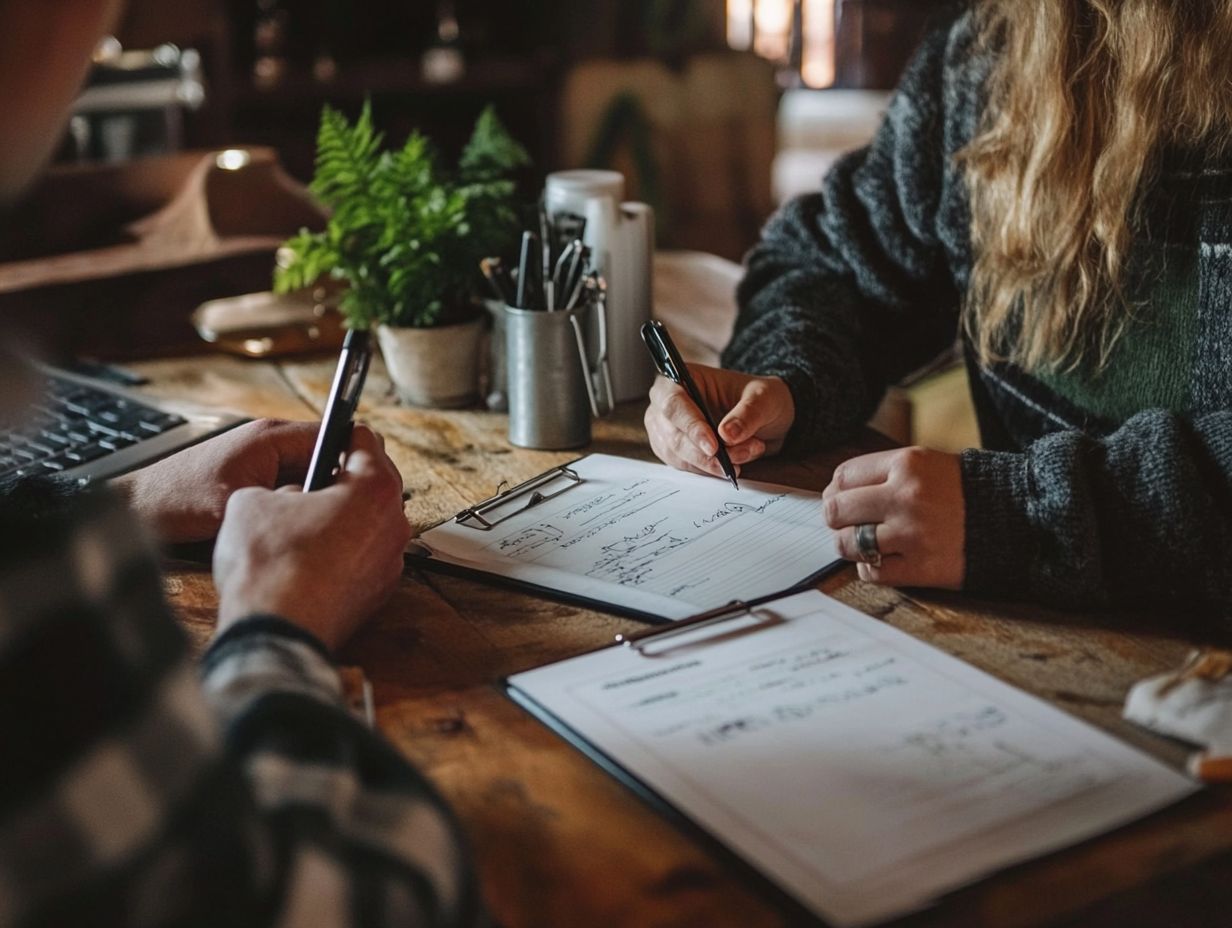
When inspectors prioritize clear and open communication, they build a solid rapport with you, fostering trust and transparency.
When they take the time to explain inspection processes, methodologies, and findings in straightforward terms, it can greatly enrich your home buying journey.
Utilizing effective techniques like active listening, asking open-ended questions, and providing well-structured reports enables inspectors to connect with you personally. This approach addresses your concerns and ensures you feel informed and empowered to make decisions based on actionable insights, especially when considering how to follow up after a home inspection.
Ultimately, cultivating this communicative relationship can lead to higher satisfaction rates and positive referrals, enhancing your overall experience!
Questions to Ask Your Home Inspector
Asking the right questions during a home inspection is crucial for you to fully grasp the findings and assess the property’s condition.
This understanding gives you the power to feel confident in your purchasing decision, allowing you to proceed with assurance.
Essential Inquiries for a Thorough Inspection
To ensure a comprehensive inspection, you should inquire about specific areas of concern, including major defects, minor defects, and any potential safety hazards that might not be immediately visible.
This is your chance to ask those important questions! Delve into the details outlined in the inspection report, which provides vital insights into the property’s overall condition.
By seeking clarification on noted issues such as the age of the roof or plumbing system you can better assess potential future expenses.
Engage in a dialogue about the nature and severity of any identified safety hazards to fully understand their implications. Using open-ended questions can pave the way for a more fruitful conversation with inspectors, enabling them to articulate their findings clearly.
Asking questions like, Can you explain how this defect might affect the property’s value? can uncover valuable information that guides you in making well-informed decisions.
How to Address Concerns and Issues
Addressing concerns and issues that arise during a home inspection is essential for keeping clients informed and confident in their decisions, particularly when safety matters are at stake.
Ensuring clarity in these situations not only builds trust but also gives clients the power to make informed choices about their investments.
Effective Communication Strategies
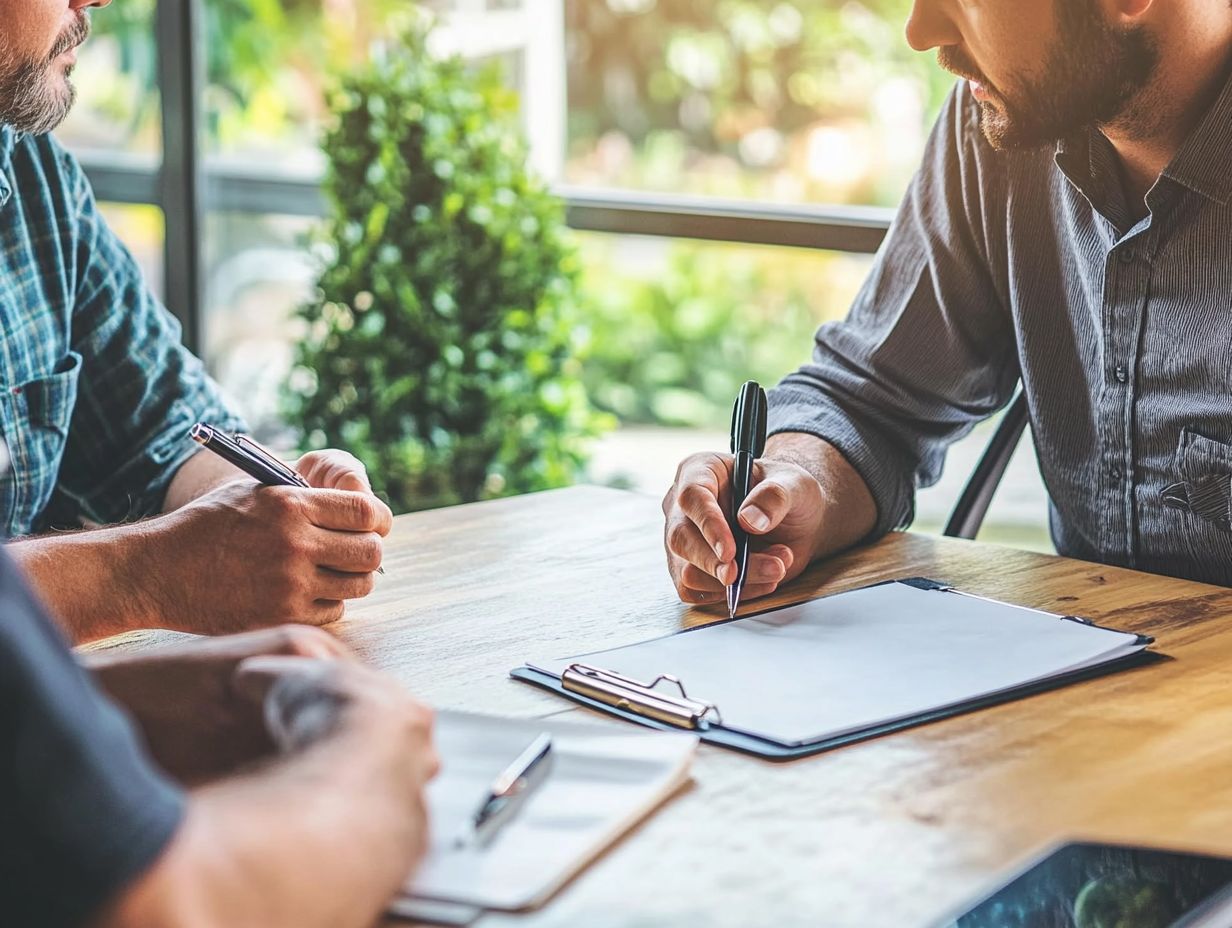
Effective communication strategies are crucial for navigating potential barriers during the inspection process. This enables you to build trust and rapport with your clients, especially when discussing how to make the most of your home inspection.
By employing techniques like listening carefully to understand, you can show your commitment to understanding your clients’ concerns.
Using clear and concise language when delivering information helps eliminate misunderstandings. This makes complex inspection findings much more accessible.
Overcoming communication barriers through empathy and responsiveness fosters clearer exchanges of information and enhances overall customer trust.
When your clients feel heard and informed, it lays a strong foundation for a positive inspector-client relationship. This ultimately leads to better outcomes and higher satisfaction.
Following Up After the Inspection
Following up after a home inspection is an essential step for you and the inspector. It provides an opportunity to clarify findings, discuss the next steps, and ensures you receive the report in a timely manner. To be well-prepared, consider reviewing how to prepare for a home inspection beforehand.
This process not only enhances understanding but also paves the way for informed decisions moving forward.
Next Steps and Further Communication
After receiving the inspection report, it’s essential for property buyers to have a clear plan of action. This includes reviewing the findings and considering effective ways to address any issues highlighted in the report.
Engaging in open dialogue with your real estate agent is vital at this stage. This conversation can provide you with deeper insights into the implications of various findings.
By discussing specific concerns and prioritizing necessary repairs, you and your agent can collaborate to negotiate effectively with the sellers.
You may also find it beneficial to seek additional information on particular issues raised in the report. This could be as straightforward as researching common home-related problems or consulting specialists for more clarity.
This proactive approach not only gives you as a buyer the power but also enhances your overall satisfaction with the inspection process. It ensures you feel informed and confident in your decisions.
Frequently Asked Questions
What should I expect when communicating with my home inspector?
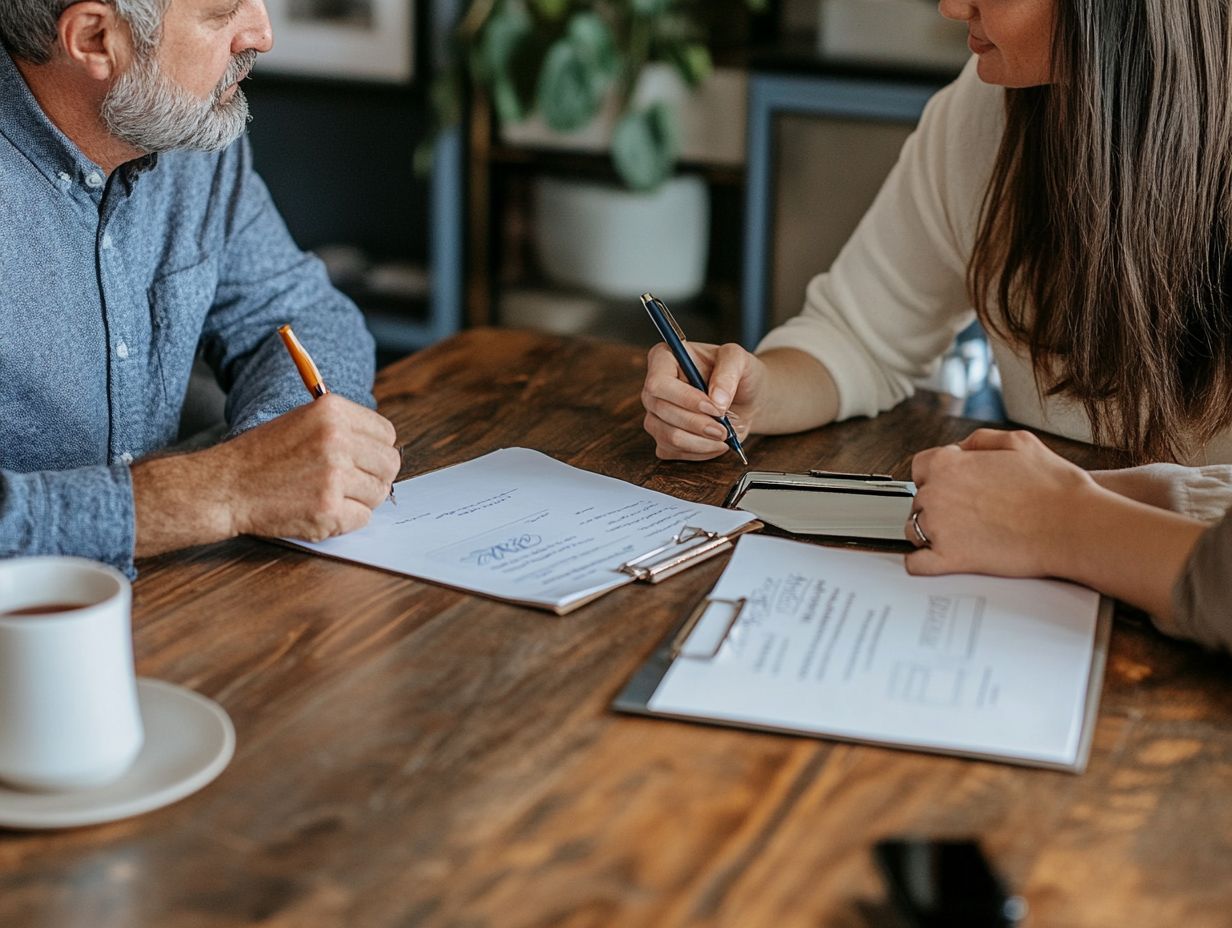
When communicating with your home inspector, expect clear and concise information about the condition of your home. To ensure you get the most from your inspection, consider how to follow up with your home inspector. They will provide you with a detailed report and explanation of any potential issues or concerns.
How can I effectively communicate with my home inspector?
Effective communication with your home inspector starts with asking questions and actively listening to their responses. It’s important to be open and honest about any concerns or questions you may have, as outlined in our guide on how to communicate with your home inspector.
What questions should I ask my home inspector?
Ask your home inspector about major issues with the home. To ensure a smooth process, it’s wise to learn how to prepare for your home inspection, prioritize repairs and maintenance, and request clarification on any unclear report areas.
Can I attend the home inspection?
Yes, you are encouraged to attend! This allows you to ask questions and understand the inspector’s findings better. If you can’t attend, the inspector will give you a detailed report.
What should I do if I have concerns about the inspection report?
Don’t hesitate to talk to your home inspector about your concerns! They can explain their findings in detail and address potential issues, so be sure to check out how to make the most of your home inspector’s expertise.
How can I use the information from the home inspection to negotiate with the seller?
The information from the home inspection can help you negotiate with the seller! If there are major issues, you can ask for repairs or a price adjustment. Your inspector can guide you on the best negotiation approach.

